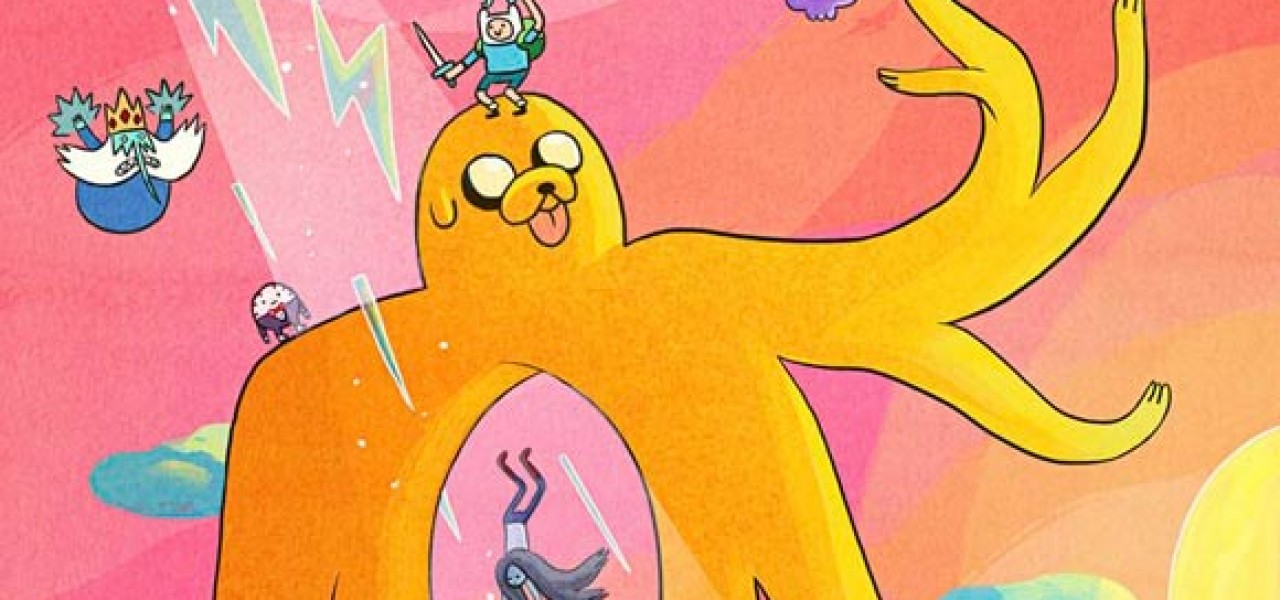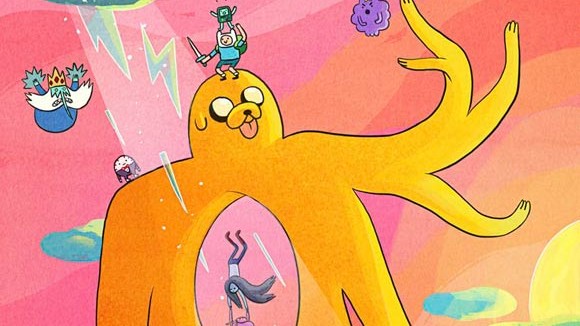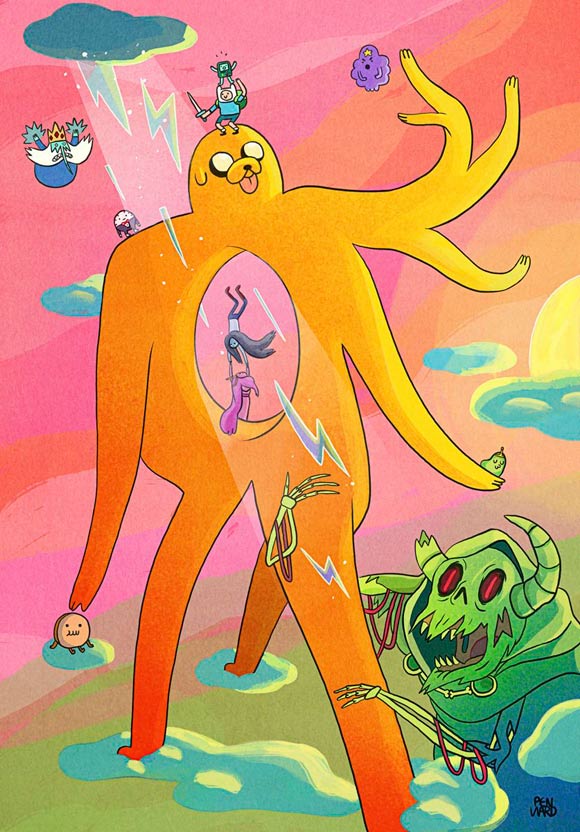

The ‘New Yorker’ Discovers ‘Adventure Time’ After Five Seasons

This week’s issue of The New Yorker does something that they rarely ever do: review an animated TV series. The show they elected to discuss is Adventure Time. With 156 episodes already aired, the magazine’s TV critic Emily Nussbaum had her work cut out for her. Here are the different ways that she attempted to explain the show to the magazine’s crusty non-animation viewing crowd:
- “It’s a post-apocalyptic allegory full of helpful dating tips for teen-agers, or like World of Warcraft as recapped by Carl Jung.”
- “[It’s] a cartoon about a hero who fights villains, with fun violence, the occasional fart joke, and a slight edge of Bushwick cool-kid hipness.”
- “There are moments when Finn’s story feels suspiciously like a compensatory fantasy, invented to disguise a trauma that can’t be faced head on—as if it were the Mulholland Drive of children’s television.”
- “[It’s] one of the most philosophically risky and, often, emotionally affecting shows on TV. It’s beautiful and funny and stupid and smart, in about equal parts, as well as willing to explore uneasy existential questions, like what it means to go on when the story you’re in has ended.”
Unfortunately, Nussbaum falls into the usual trap of cartoon viewers who resort to drug comparisons and analogies to describe animation. She does it twice, first saying that, “It’s also the type of show that’s easy to write off as ‘stoner humor,'” and later on, referring to Pen Ward’s creation as ‘a druglike experience.’
If Adventure Time is a druglike experience, what would the New Yorker make of the average Fleischer, Harman-Ising, or Iwerks theatrical short from the 1930s? These reductive statements, which are almost never used to describe fine art, do a disservice to the creativity of the artwork by suggesting that animation is an indescribable art form akin to being in an altered mental state. They fail to acknowledge that the animation art form’s uniqueness stems, in large part, from its ability to transcend reality and indulge in the realm of the fantastic and the impossible.
By the last paragraph of the piece, Nussbaum assumes an almost apologetic tone, acknowledging that her description “may leave you cold,” because “like any trip, Adventure Time has a definite ‘you had to be there’ quality.” Admirably, she refuses to give up and concludes with an exhortation to her readers to give the show a chance:
But that’s part of the show’s most freeing quality: childlike, nonlinear, poetic, and just outside all the categories that the world considers serious, it’s television that you can respond to fully, without needing to make a case for why. Here. Have a taste.

